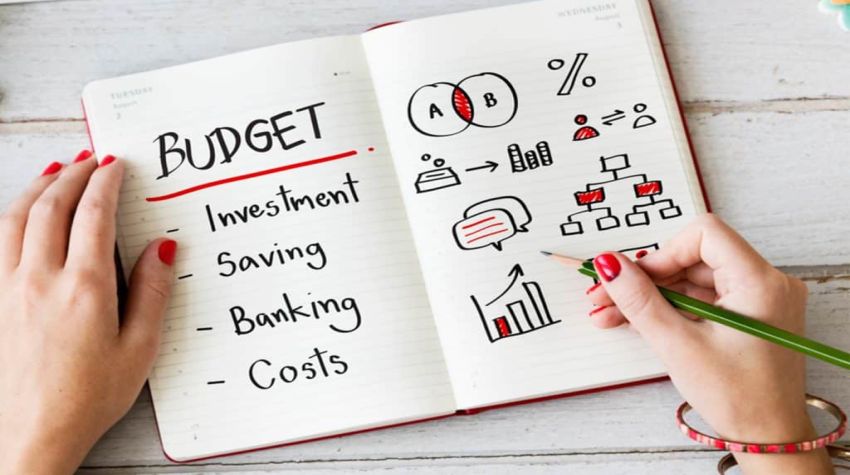
Have you made your New Year’s resolutions? You might have already dusted off some of those perennial favourites: lose weight, drink less, travel more, etc. But what about resolutions for your wealth? Just as “lose 10lbs by visiting the gym twice per week” is a better goal than “get fit,” setting specific, measurable goals for your finances is an important step in achieving them. If you’re unsure of what to focus on beyond “spend less, save more”, let these 6 money-saving tips guide your resolutions to make 2021 a financial game changer.
1. Invest in Yourself
One of the best investments you can make is in yourself. The best areas to focus on are your earning potential, financial literacy, and mental health. 2020 was a difficult year for most, and caused significant upset to people’s careers, savings, and lifestyles. While no one could have prepared for a global pandemic, we can fix any vulnerabilities it identified. Now, more than ever, people are understanding how big their Emergency Fund should really be and why investing in the stock market is essential to financial security.
This is a great time pursue extra education and credentials that can increase your earning potential. You might even want to switch to a new career entirely. Likewise, the stress of the past 12 months has emphasized how important it is to take care of your health. Go ahead and adjust your budget to fit essentials like a gym membership or therapy to ensure you can really go into 2021 ready for whatever the year has in store.
2. Get Rid of Your High-Interest Debt
Carrying multiple balances, especially at varying interest rates, can feel like death by a thousand paper cuts when your bills come in the mail. If one of your goals is to get your debt under control in 2021, consolidating that debt on a low-interest loan or line of credit might be the answer.
Debt consolidation means moving all or most of your debt to one place, so that you can experience the joys of having only one interest rate, one minimum payment, and one repayment term. You can do this by taking out a line of credit, debt consolidation loan, or credit card and using it to pay off all your existing balances. Not only will credit consolidation alleviate the headache of managing a number of different payments, it can also reduce the carrying cost of your debt and even get you out of debt faster. It’s also likely to give your credit score a boost right off the bat!
3. Start Saving for a Big Goal
If you really want to start the New Year off right, take your first steps to accomplishing something big with your money. This can be anything from saving up a down-payment for your first home or finally starting a retirement savings account. Whatever your goal, make sure you know exactly what you’re saving for and the specific dollar amount you need.
Once you know your money wish and the price tag, it’s time to plan. If you want to hit your target by the end of 2021, all you need to do is divide the amount you need to save by 12, and that will tell you how much you need to set aside each month. For example, this might be the year you finally make good on your promise to yourself to have an emergency fund. If you want to have $2,000 saved by the end of the year, you’ll need to set aside $167 per month to accomplish this goal.
Once you know what you’re saving for and how much you’ll need, open a dedicated high-interest savings account, and start saving right away. Bonus points if you open the account with a financial institution other than your primary bank, so you don’t see the cash and are tempted to spend it every time you log in to your online banking. To give your goal an extra boost, don’t wait until your first paycheque in January to start saving. Even if you only have $10 to spare right now, deposit it in your new savings account to give your goal some momentum.
4. Introduce Good Financial Habits
The best way to ensure your meet your financial goals in 2021 is to set up good routines and habits that ensure your success happens automatically.
Commit to “No-Spend” Days
One of the best things you can do is commit to 1 or 2 two “no-spend” days per week. These are days where you don’t spend any money. You make coffee at home, you don’t order-in dinner, and you definitely don’t make any online purchases or visit any stores. No spend days help get you identify what spending is really necessary and how much you do just out of habit.
Check Your Finances
Another great thing you can do is set aside 1 or 2 hours each week to review your finances. This is a great thing to do Sunday night before the start of your week. Block off some time to review your spending, pay any outstanding bills, and check up on the performance your investment portfolio. Even if you have a budgeting app that tracks all your spending, you still need to go over everything and make sure there are no mistakes that are costing you.
5. Reduce Your Financial Stress
Managing your debt, saving for the future, and trying to earn more money all at one time can be exhausting, and make it difficult to do any one of those tasks well. To free up the emotional and mental energy you need to tackle big financial goals, focus on optimizing the little things first.
Here are some quick ways to reduce the mental load of regular financial housekeeping, so you can focus on bigger tasks at hand:
- Sign up to receive your credit report emailed to you monthly so you always know exactly where you stand
- Automate all your regular bills to a single cash-back or rewards credit card
- Set up a weekly transfer from your chequing account to your retirement investments to ensure you’re always saving for the future
- Look for discounts by bundling services from one provider
- Review your insurance coverage, and make sure you have the often-neglected but always-needed coverage, like disability insurance
- Rid yourself of subscriptions
6. Plan for the Future
As soon as you have assets, whether they be in the form of property, stocks, investments, or a vehicle, you should start thinking about putting together a legal will. If anything were to happen to you, this is the only way to ensure your wishes are respected and your assets are disbursed how you want them to.
Every day is a chance to start fresh with your finances, but there’s something about the New Year that can inspire that extra boost to get your bank account in order. There’s never been a better time to remedy old mistakes and reach new money milestones, so when you sit down to make your 2021 resolutions, make sure to include a few that will put more money in your pockets–now, and for many years to come!









